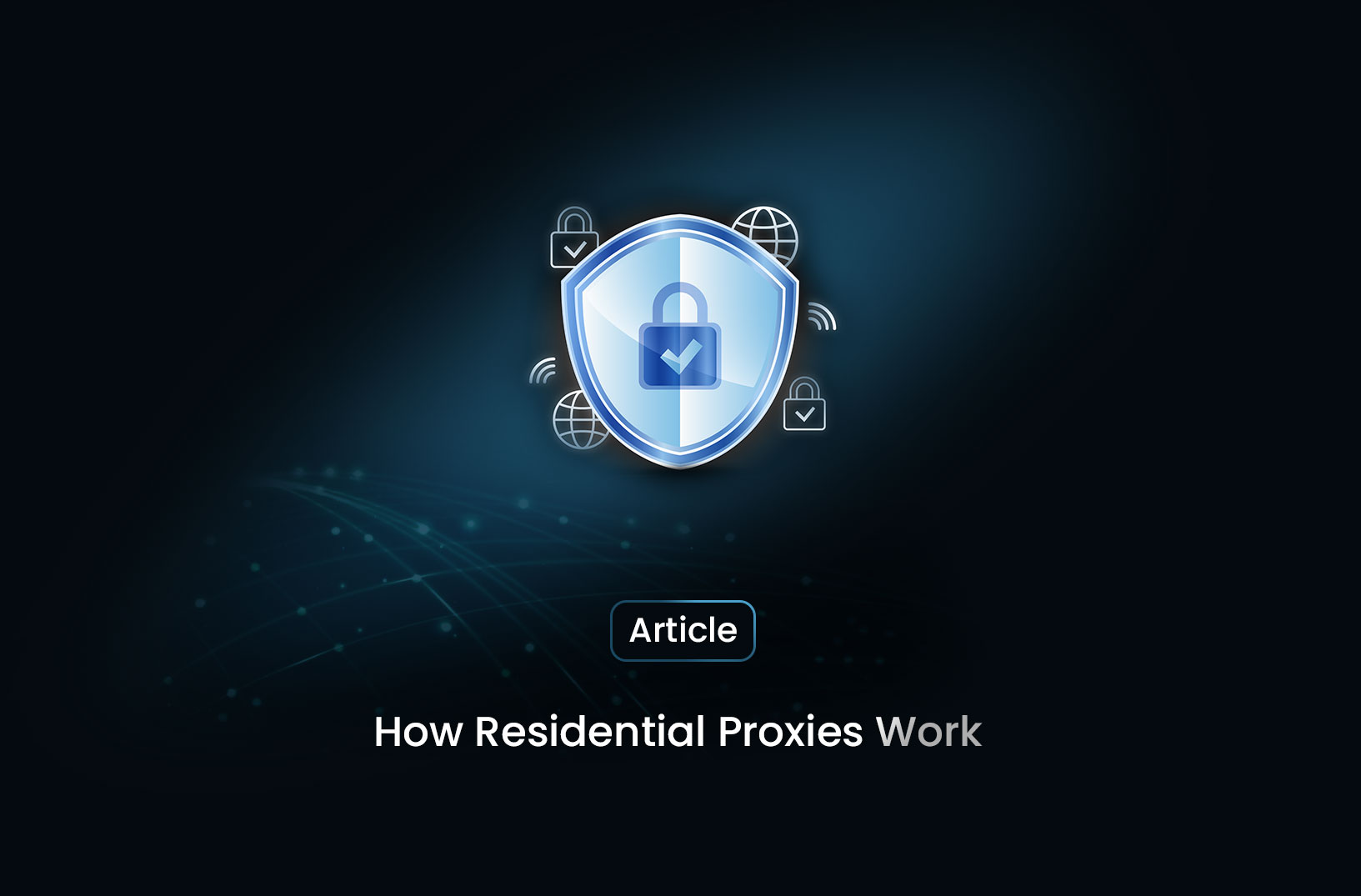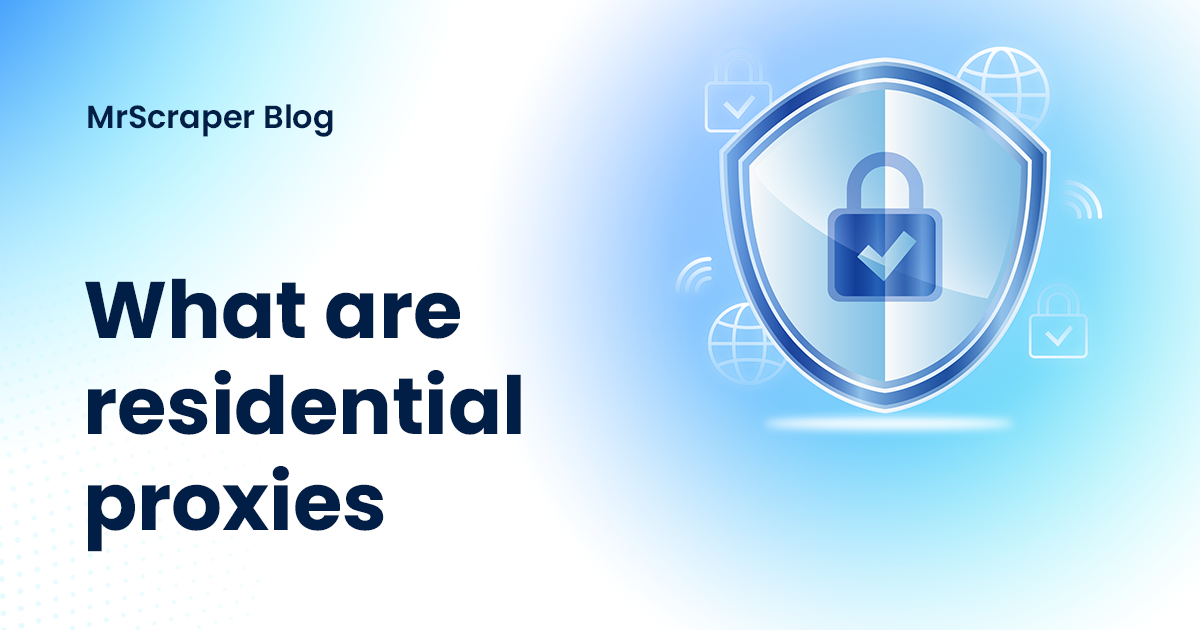
What are Residential Proxies?
ArticleResidential proxies are Internet Service Provider (ISP) that offers a homeowner an IP addresses. These IPs are pegged as authentic because they are assigned to actual addresses, thus outsmarting the blocking attempts of site owners more than datacenter proxies.
 Scraping the web may be one of the most troublesome hurdles you face when you are scraping web pages as they might block you. This is because the website notices dubious activity, for example, repeating requests from the same IP address in a period of time shorter than expected. To counter this practice, developers are often to use residential proxies.
Scraping the web may be one of the most troublesome hurdles you face when you are scraping web pages as they might block you. This is because the website notices dubious activity, for example, repeating requests from the same IP address in a period of time shorter than expected. To counter this practice, developers are often to use residential proxies.
Residential proxies are Internet Service Provider (ISP) that offers a homeowner an IP addresses. These IPs are pegged as authentic because they are assigned to actual addresses, thus outsmarting the blocking attempts of site owners more than datacenter proxies.
Residential proxies are beneficial for web scraping because:
- Less likely to be blocked: Since residential proxies look like regular users’ IP addresses, websites are less likely to block them.
- Higher anonymity: It is harder for websites to detect and blacklist residential IPs.
- Geolocation flexibility: Residential proxies can be selected based on the region, helping you scrape content restricted by geography.
If you have a list of residential proxies and you want to use them manually in your scraping code, here’s how you can do it in JavaScript using a library like Puppeteer for browser automation:
const puppeteer = require('puppeteer');
// Proxy list example
const proxyList = [
'http://user:pass@proxy1.example.com:8000',
'http://user:pass@proxy2.example.com:8000',
'http://user:pass@proxy3.example.com:8000',
];
// Function to pick a random proxy from the residential proxies list
function getRandomProxy() {
return proxyList[Math.floor(Math.random() * proxyList.length)];
}
(async () => {
const proxy = getRandomProxy();
// Launch the browser with the selected proxy
const browser = await puppeteer.launch({
args: [`--proxy-server=NULL`], // Set the proxy for the browser instance
});
const page = await browser.newPage();
// Authenticate proxy if required
await page.authenticate({
username: 'user',
password: 'pass'
});
// Example: Go to a target website
await page.goto('https://example.com');
// Perform scraping actions
const content = await page.evaluate(() => document.body.innerText);
console.log(content);
await browser.close();
})();
In this code example:
- We define a list of residential proxies in the format
http://user:pass@proxy_address:port. - The
getRandomProxyfunction picks one proxy from the list at random. - We pass the selected proxy to Puppeteer’s
launchfunction, ensuring that all requests go through the proxy. - If the proxy requires authentication, we use the
page.authenticatefunction to pass the credentials.
Why Coding Web Scrapers Yourself Can Be Difficult
While using residential proxies can help avoid getting blocked, web scraping is still a complex task that involves several challenges:
- CAPTCHA Handling: Many websites use CAPTCHAs to prevent automated access. Solving these programmatically requires additional tools.
- Dynamic Content: Some websites load data dynamically using JavaScript frameworks like React or Angular, which means traditional scraping methods won’t work.
- Website Updates: Websites change their structure often, which means you need to frequently update your scraping code.
- Rate Limits: Even with proxies, scraping too quickly can result in your requests being throttled.
Rather than dealing with the complexity of coding, debugging, and maintaining your own web scrapers, why not use MrScraper? We provide an easy-to-use interface, handle proxy management, and adapt to changes on websites so you can focus on getting the data you need, quickly and efficiently.
Let us do the heavy lifting so you don’t have to!
Find more insights here
.jpg)
How to Handle Timeouts in Python Requests
Learn how to handle timeouts in Python requests properly, including connect vs read timeouts, retrie...
.jpg)
What Is a Search Engine Rankings API and How It Powers Modern SEO
Learn what a Search Engine Rankings API is, how it works, key features, real use cases, and how it p...

How to Scrape Google Shopping: A Complete Guide to E-commerce Data Extraction
Google Shopping is one of the largest product discovery platforms online. It aggregates product list...
